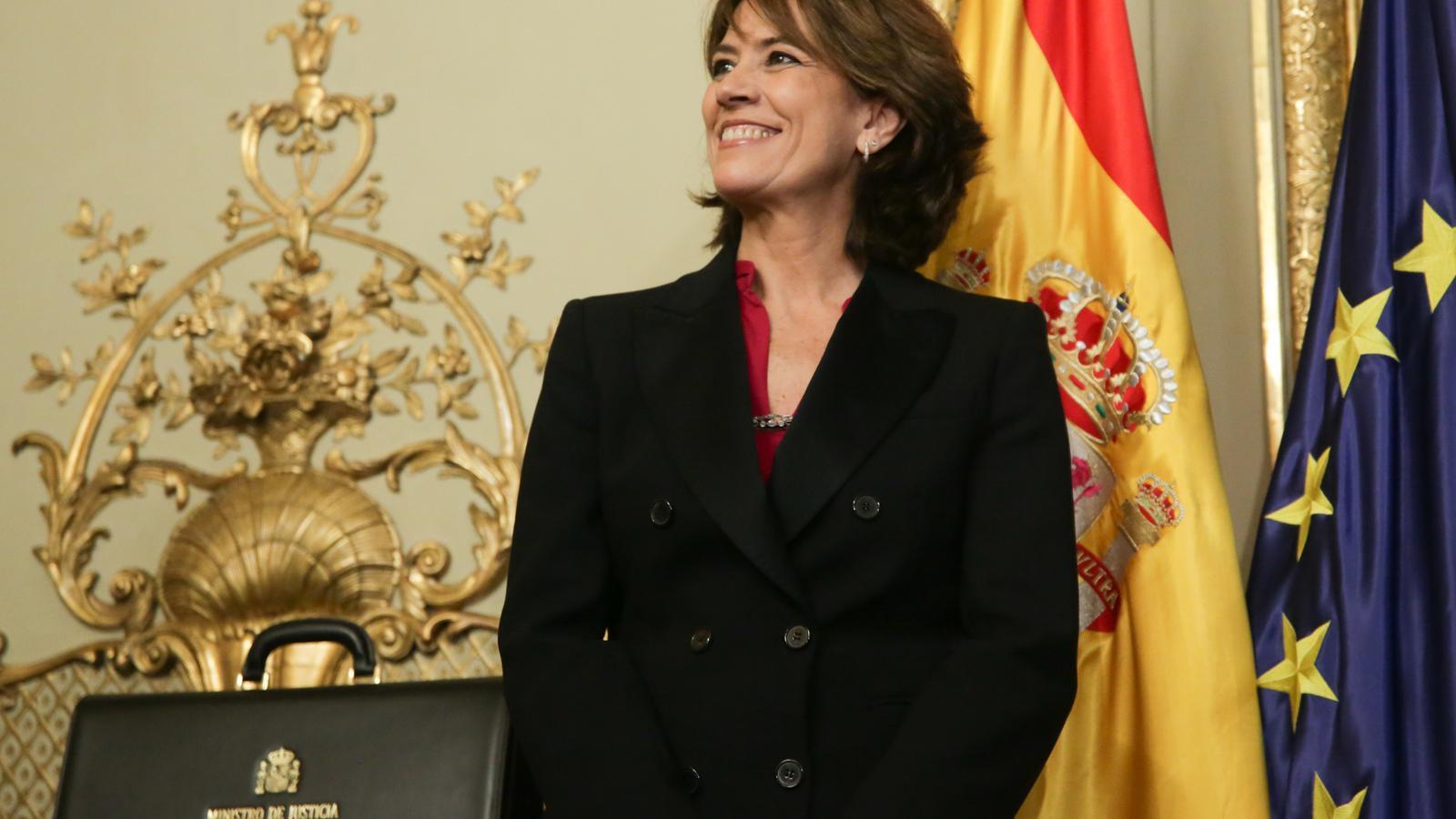The Supreme Court saves Sánchez and throws out the PP and Vox's attempt to bring down Delgado
Court believes it is not entitled to challenge her appointment as attorney general of the State


MadridThe Supreme Court has saved Pedro Sánchez from an initiative by PP and Vox that would have put the Spanish prime minister in a very bad place. One of his most controversial decisions since he arrived at the Moncloa, appointing Dolores Delgado attorney general of the State, will not be revoked by the court. This Tuesday the fourth section has thrown out the appeal presented by right-wing parties, as it considers that it lacks the power to challenge the executive's move. The ruling, adopted by five of the seven members of the court, will be released in the coming days.
Delgado went straight from the Ministry of Justice to attorney general of the State, soon after two elections in which she ran as a Socialist candidate. On January 14, 2020, the same day that her appointment was announced, she handed over to her successor in the ministry, Juan Carlos Campo. The PP filed a lawsuit warning of the "blatant partiality" of this appointment and, to justify its power to file an appeal, stressed that Delgado could seek the party to be banned.
In its letter, the PP compiled phrases the former minister had pronounced, which showed, they denounced, her "animosity" towards the PP. "The PP has corruption in its DNA", "being close to the PP is a bit toxic", "the PP is a corrupt and decomposing party, and this decomposition is reflected every day in Congress", "the PP is working against coexistence and this generates insecurity" because "it degrades the institutions and Congress itself" are some of the phrases that stood out in the lawsuit.
Vox, which since its origins has made the courts its space to seek attention, to the point of challenging the PP as the main party of the right, joined in. The fourth section has cumulatively debated two lawsuits and rejected them. The rapporteur is Judge Pilar Teso and the court has also integrated the president of the contentious-administrative chamber, César Tolosa. While waiting to see the two private votes, the litigation was marked by some members' willingness to escalate the decision to the full court. If this had been the case, the appeals would have been heard by the thirty or so judges who are part of the third chamber, which would have made the decision more uncontrollable and uncertain
